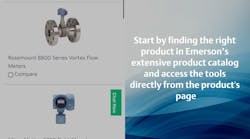Which of the following describes a liquid that exhibits the same viscosity independent of how the fluid is stressed?
A. Ideal Plastic
B. Inverted Plastic
C. Newtonian
D. Non-Newtonian
E. Thixotropic
Commentary
Viscosity is the ability of a fluid to flow over itself. Newtonian fluids exhibit the same viscosity without regard for how the fluid is stressed. Answer C is correct.
Additional Complicating Factors
Discussions about viscosity can quickly become complicated – even after disregarding the relatively large number of viscosity units in common use. The viscosity of some common fluids can vary when the fluid is stressed.
Surely you have tried to remove ketchup from its bottle. You may have noticed that mildly shaking the bottle will not cause the ketchup to flow because the ketchup exhibits a relatively high viscosity under this condition. More vigorous shaking will start flow and the viscosity appears to drop. Once started, the ketchup flow can increase even more as its viscosity drops further. Put differently, did you ever try to put ketchup on a hamburger by shaking the ketchup bottle increasingly more intensely – only to suddenly find a big blob of ketchup on the hamburger? Such can be consequences of viscosity variations associated with fluids that are not Newtonian.
Other liquids can exhibit the opposite effect, that is, more vigorous action causes the viscosity to increase and reduce flow. This can occur in some slurry flows where increasing the speed of a pump can actually reduce the flowrate because the increasing viscosity of the slurry increases the pressure drop in the discharge piping, thereby reducing the slurry flow.
As mentioned above – discussions about viscosity can quickly become complicated.
David W. Spitzer is a regular contributor to Flow Control with more than 35 years of experience in specifying, building, installing, startup, troubleshooting, and teaching process control instrumentation. Mr. Spitzer has written over 10 books and 150 technical articles about instrumentation and process control, including the popular “Consumer Guide” series that compares flowmeters by supplier. Mr. Spitzer is a principal in Spitzer and Boyes LLC, offering engineering, expert witness, development, marketing, and distribution consulting for manufacturing and automation companies. He can be reached at 845 623-1830.



